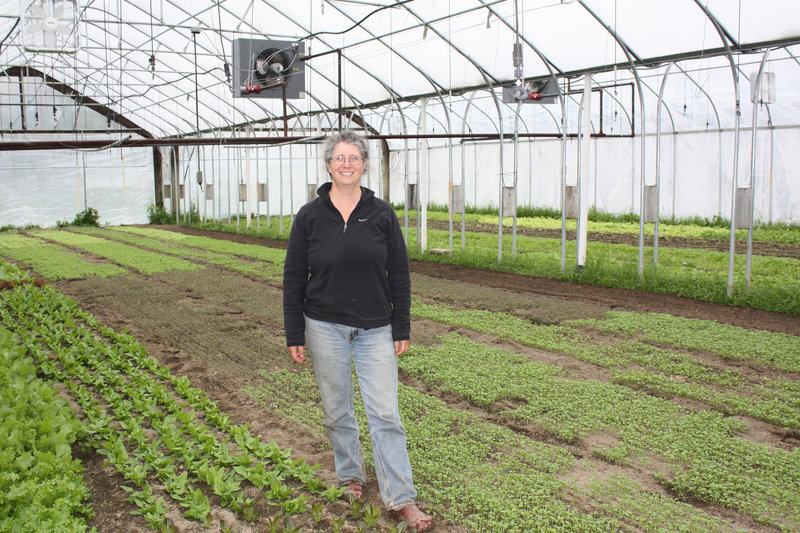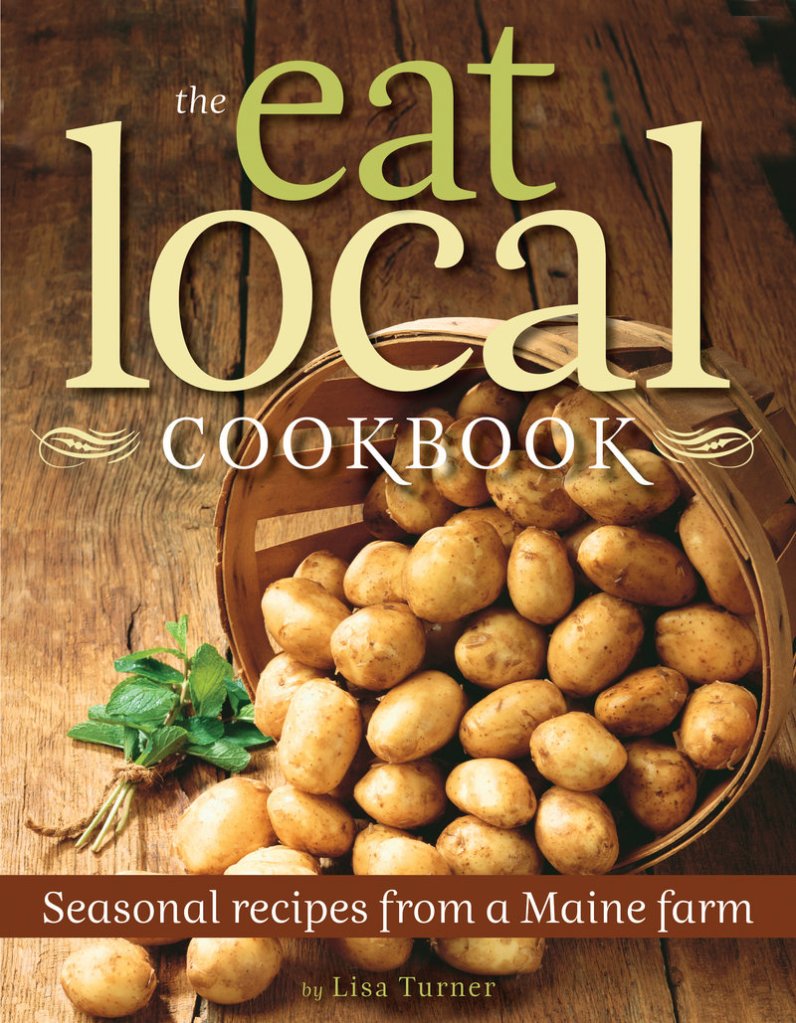Organic vegetable farmer Lisa Turner blames her choice of profession on cold weather gardening guru Eliot Coleman.
“It’s his fault,” Turner said with a smile on a recent afternoon at Laughing Stock Farm in Freeport, which she owns with her husband, Ralph.
Lisa Turner was raised in suburban New Jersey and came to the Pine Tree State to attend the University of Maine, where she majored in soil science and civil engineering. While at school, she read Coleman’s “Four Season Harvest.” The book is what led her to gardening, which eventually propelled her into year-round vegetable farming.
So it’s fitting that Coleman penned the introduction to “The Eat Local Cookbook: Seasonal Recipes from a Maine Farm,” which Turner wrote and is hot off the press from Down East.
The book celebrates the abundance of Maine-grown and -raised food with simple recipes featuring short ingredient lists and quick preparation times.
In addition to recipes, the cookbook provides information on where to find local food, details on how to store vegetables commonly grown in Maine and tips for growing specific vegetables.
“The goal of the tips is stuff I wish someone had told me when I first started gardening,” Turner said.
In addition to growing your own vegetables, Turner explains that the other way to get local food is to buy it from farm stands, CSAs, farmers markets, cooperatives, health food stores and small grocery stores.
“It can be challenging to eat this way,” she said. “It makes you expand what you do.”
Seeking out local food often means people need to change their shopping routines and recipe repertoire, but Turner said the payoff in freshness and flavor is worth it.
“It’s fun to see other people who try it and get hooked because the carrots are so much better,” Turner said.
“If you can grow a carrot here and buy a carrot here, why would you (buy it from elsewhere)?” she asked, and outlined some of the economic and environmental arguments that support buying local food.
And while these philosophical and policy discussions interest her, she said the bottom line for most people comes down to the fact that local food “just tastes better.”
Organized by seasons, the cookbook aims to supply people with recipes that incorporate often unfamiliar, but readily available, vegetables such as chard, kale and fennel.
Yet the recipes and Turner’s personal cooking style don’t exclude ingredients that can only be imported, as evidenced by the oranges on her kitchen table and the olive oil on the counter.
As she writes in the cookbook, “coffee and chocolate greatly enhance my life, and lobsters and blueberries will greatly enhance the lives of people in other places. Therefore trade is good. What doesn’t make any sense to me is to send hard-earned money to buy apple juice from China (one of the major importers of apple juice) when I can get apple cider from only thirty miles away.”
The recipes are not as unusual as ones you’d find in a raw vegan or gluten-free cookbook. Instead, with familiar offerings such as zucchini casserole, stuffed tomatoes, beef stew and shepherd’s pie with rutabagas, the cookbook is very approachable. Turner said her favorite recipes in the book include chard with feta and olives (see recipe at right), moussaka and garlic shrimp with baby bok choi.
The difference between this and other cookbooks with similar recipes is the emphasis on vegetables and the use of whole, unprocessed ingredients.
For instance, Turner uses raw dairy products, rather than the pasteurized and processed ones sold in the big grocery stores.
“Raw milk comes with all the enzymes you need to break it down,” Turner said. “So it’s more digestible.”
One excuse people often give for not eating local food is that they believe it’s too expensive.
Turner said this is really just an expression of priorities and choices.
“I’m a farmer and I do it, and most people make more money than I do,” she said. “I also never have a vacation, and all my cars have 200,000 miles on them. A lot of it is choice making. But a lot of local food isn’t more expensive.”
Even though she advocates that people use the bounty of local foods to discover the pleasures of cooking, sometimes Turner herself can’t wait to get the fresh produce she grows inside the kitchen before enjoying it.
“That first tomato that ripens,” Turner said, “I’m not going to do anything but eat it.”
Staff Writer Avery Yale Kamila can be contacted at 791-6297 or at: akamila@pressherald.com
Follow her on Twitter at: Twitter.com/AveryYaleKamila
Send questions/comments to the editors.




Success. Please wait for the page to reload. If the page does not reload within 5 seconds, please refresh the page.
Enter your email and password to access comments.
Hi, to comment on stories you must . This profile is in addition to your subscription and website login.
Already have a commenting profile? .
Invalid username/password.
Please check your email to confirm and complete your registration.
Only subscribers are eligible to post comments. Please subscribe or login first for digital access. Here’s why.
Use the form below to reset your password. When you've submitted your account email, we will send an email with a reset code.